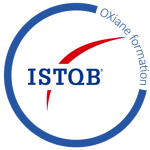Prochaines sessions
Programme
The Basis of Security Testing
- Security Risks. Information Security Policies and Procedures.
- Security Auditing and its Role in Security Testing.
Security Testing Purposes, Goals and Strategies
- The Purpose of Security Testing.
- The Organizational Context.
- Security Testing Objectives.
- TheScope and Coverage of Security Testing Objectives.
- Security Testing Approaches.
- Improving the Security Testing Practices.
Security Testing Processes
- Security Test Process Definition.
- Security Test Planning. Security Test Design.
- Security Test Execution.
- Security Test Evaluation.
- Security Test Maintenance.
Security Testing Throughout the Software Lifecycle
- Role of Security Testing in a Software Lifecycle.
- The Role of Security Testing in Requirements.
- The Role of Security Testing in Design.
- The Role of Security Testing in Implementation Activities
- The Role of Security Testing in System and Acceptance Test Activities.
- The Role of Security Testing in Maintenance.
Testing Security Mechanisms
- System Hardening.
- Authentication and Authorization.
- Encryption.
- Firewalls and Network Zones.
- Intrusion Detection.
- Malware Scanning.
- Data Obfuscation. Training.
Human Factors in Security Testing
- Understanding the Attackers.
- Social Engineering.
- Security Awareness.
Security Test Evaluation and Reporting
- Security Test Evaluation.
- Security Test Reporting.
Security Testing Tools
- Types and Purposes of Security Testing Tools.
- Tool Selection.
Standards and Industry Trends
- Understanding Security Testing Standards.
- Applying Security Standards.
- Industry Trends.

